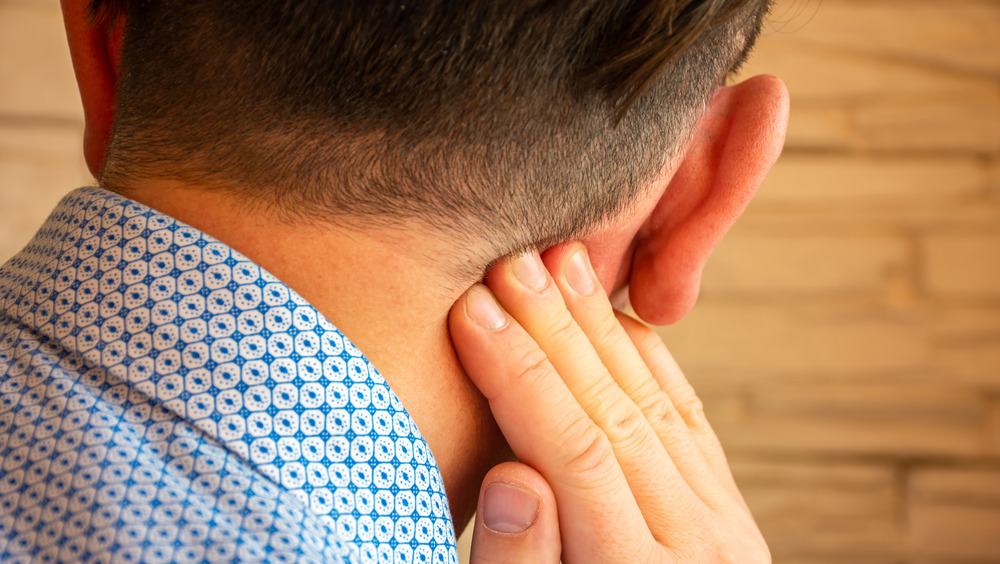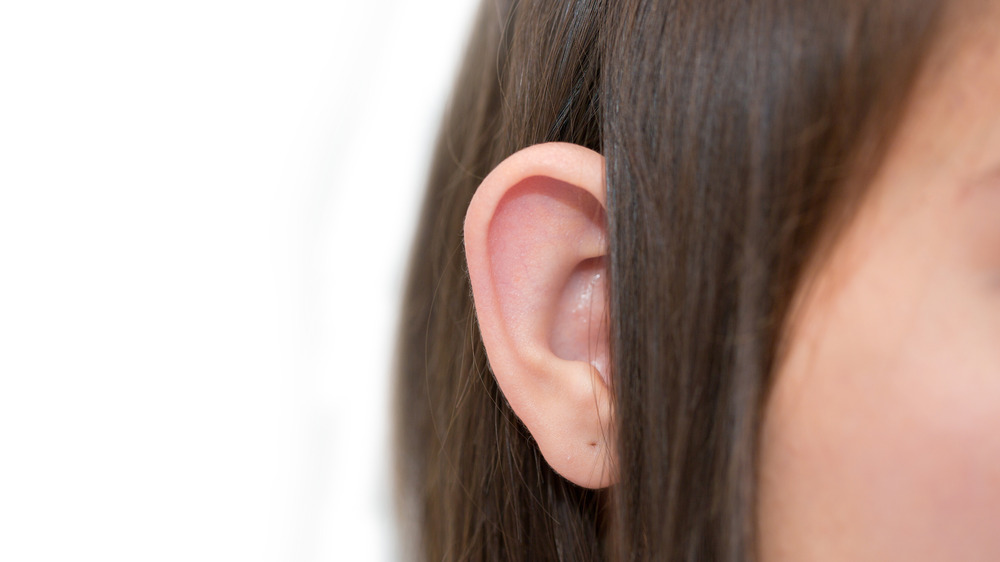When You Don't Clean Your Ears Every Day, This Is What Happens
We all have our personal hygiene routine, typically involving washing our face, brushing our teeth, showering, and so on. It's easy to forget about your ears in your hygiene routine. When you hear about cleaning your ears, you may immediately want to go for the Q-Tip pack. But the American Academy of Otolaryngology/Head and Neck Surgery Foundation say you should always keep those cotton swabs out of your ears (via Harvard Health Publishing).
However, the area around your ears can be just as important to keep clean as the rest of your face. Taking a preventative approach to cleaning the area around and behind your ears can keep the potential for any skin conditions or smells to develop.
A smell behind your ears could crop up if you have a skin condition like seborrheic dermatitis or infections to piercings, cuts or injuries, or even yeast infections (via Medical News Today). Focusing on good hygiene behind your ears is important because that area of skin can trap sweat, oils, and residue from skin or hair care products. This is particularly important for those with longer hair.
How you can clean your ears safely
Cleaning the area behind your ears can be as simple as using soap and warm water to thoroughly wash on a daily basis. Use a mirror to try to look for any signs of irritation, and if you have sensitive skin, stick to soaps designed for your skin type. You should also exfoliate that area of skin a couple of times a week to prevent dead skin from building up, according to Medical News Today.
If you feel the need for an interior ear cleaning, you can turn to professionals and get it done by your medical provider. When you don't clean the inside of your ears every day, it is actually a good thing, as your ears are "self-cleaning," according to Harvard Health Publishing.
You can also consult with your healthcare provider if you feel you have skin issues or infections around your ears. Prescription medications may do the trick in remedying any lingering effects.


